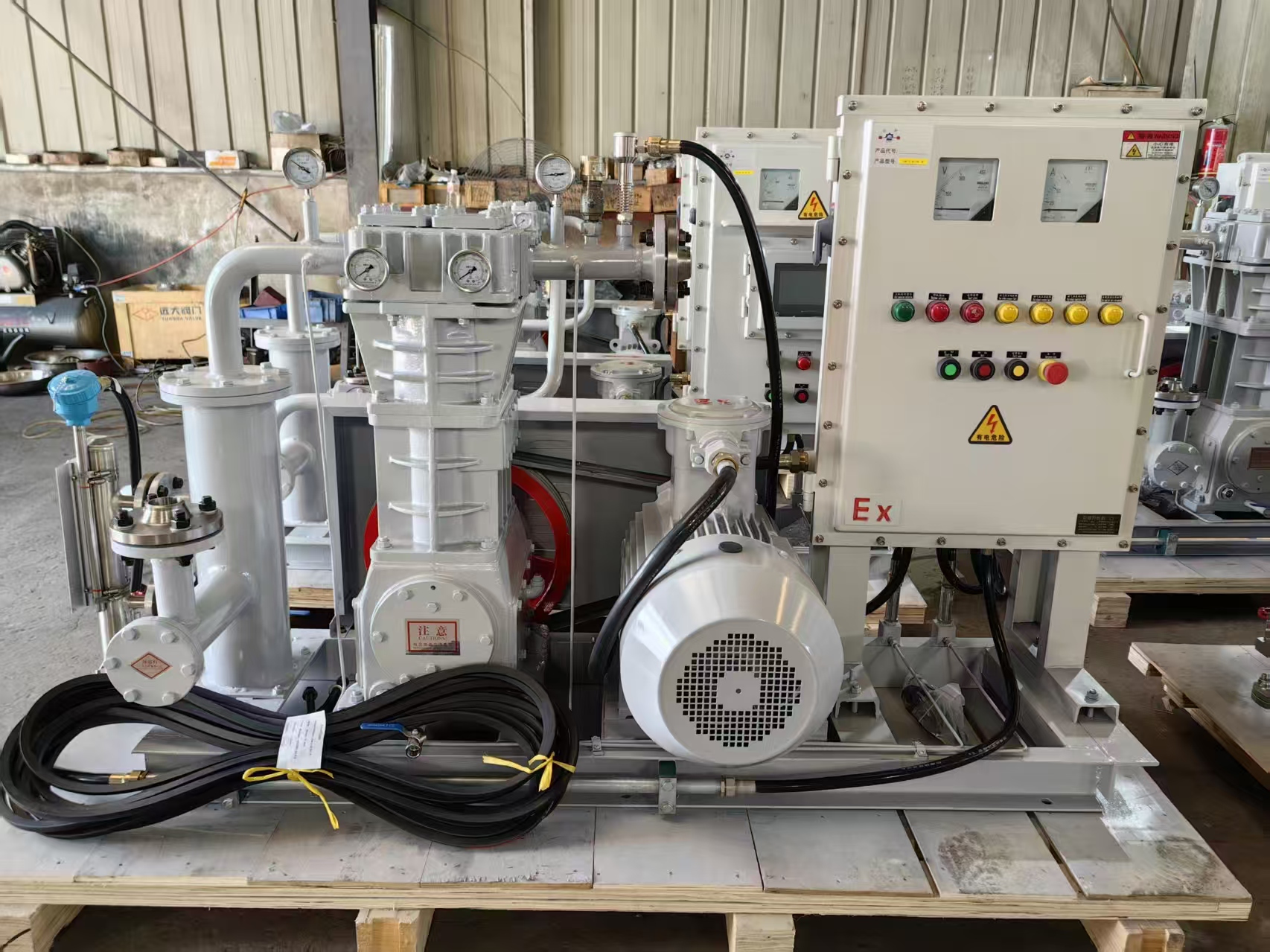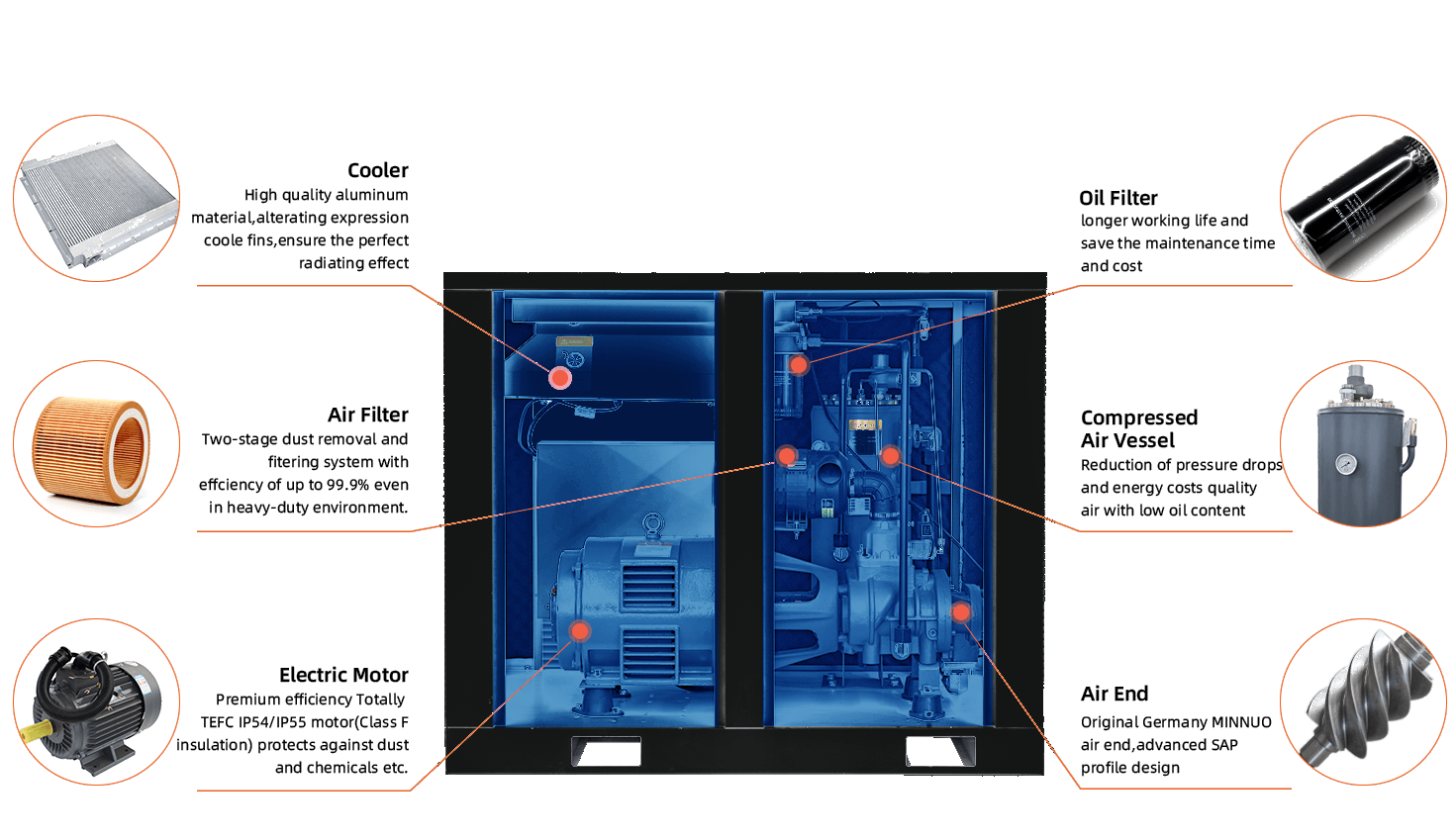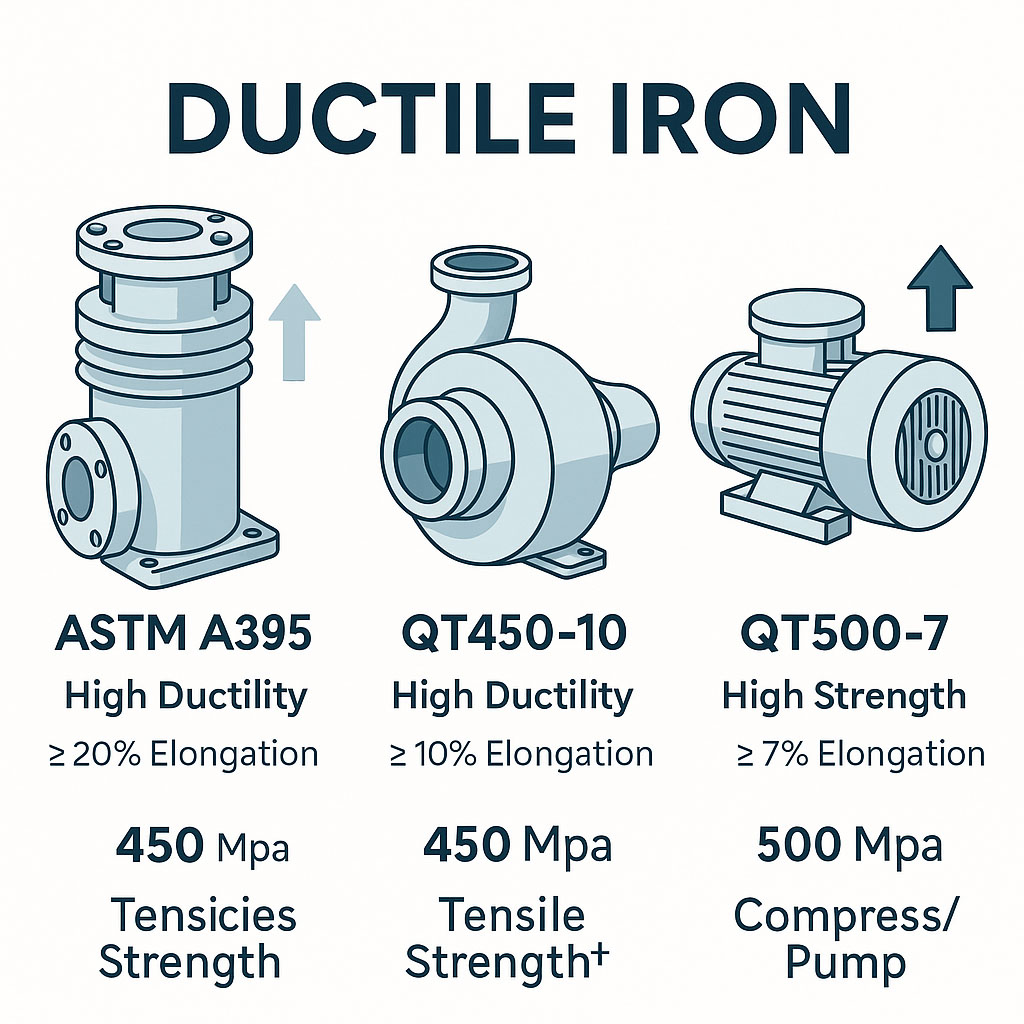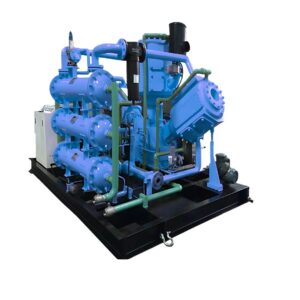Compressed air is the lifeblood of countless industries, powering everything from tools and machinery to complex industrial processes. Choosing the right type of air compressor is a critical decision that can significantly impact operational efficiency, energy costs, and overall productivity. The two most prevalent types in industrial applications are reciprocating (piston) compressors and rotary screw compressors. But how do you decide between reciprocating vs screw compressors?
With over 40 years in compressor design and 23 years in dedicated manufacturing, KEEPWIN offers this comprehensive guide to help you navigate the complexities and make an informed decision tailored to your specific needs.
Understanding Reciprocating Compressors: A KEEPWIN Perspective
Often seen as the traditional workhorse, reciprocating compressors use pistons driven by a crankshaft to compress air within cylinders. Think of it like the engine in your car. Air is drawn into a cylinder, compressed by a reciprocating piston, and then discharged.
Key Advantages of Reciprocating Compressors:
- Lower Initial Cost: For smaller capacity requirements and applications where budget is a primary initial concern, reciprocating compressors often present a lower upfront investment.
- High-Pressure Capability: They can efficiently achieve very high pressures, making them suitable for specialized applications.
- Efficiency at Partial Load (for some designs): Certain designs can operate efficiently even when not running at full capacity, which can be beneficial for intermittent use.
- Simpler Maintenance for Basic Tasks: As a seasoned manufacturer, KEEPWIN designs its reciprocating units with robust components, often allowing for simpler field serviceability for routine maintenance. This is a key aspect of
reciprocating compressor design advantages (KEEPWIN insights).
Considerations for Reciprocating Compressors:
- Noise and Vibration: They tend to be louder and produce more vibration than screw compressors.
- Maintenance Intensity: With more moving parts (pistons, rings, valves), they can require more frequent maintenance to ensure longevity, though well-built units are designed for durability.
- Pulsating Airflow: The nature of piston compression results in a pulsating air delivery, which may necessitate larger air receiver tanks to ensure a steady supply.
- Duty Cycle: Typically, they are better suited for intermittent use rather than continuous, 24/7 operation, especially in smaller sizes.
Typical Applications: Automotive repair shops, smaller manufacturing facilities, workshops, and any application characterized by intermittent air demand or requiring very high pressures.
Decoding Screw Compressors: Insights from Manufacturing Expertise
Rotary screw compressors operate on a different principle. They use two intermeshing helical rotors (screws) that rotate in opposite directions. Air is trapped in the cavities between these rotors and progressively compressed as it moves along their length before being discharged.
Key Advantages of Screw Compressors:
- Continuous Operation & High Efficiency: Screw compressors are designed for 100% duty cycle, meaning they can run continuously without issues. They generally offer higher efficiency, especially in applications requiring a consistent and large volume of air. At KEEPWIN, our precision engineering in rotor profiling and strict adherence to
screw compressor manufacturing standards and efficiencyensure optimal performance and significant energy savings for our clients. - Lower Noise and Vibration: They operate much more quietly and with less vibration than reciprocating units, leading to a better working environment.
- Consistent Air Delivery: They provide a smooth, non-pulsating flow of compressed air.
- Energy Efficiency in Larger Capacities: For medium to large industrial needs, screw compressors, particularly those with Variable Speed Drive (VSD) technology, offer superior energy efficiency.
Considerations for Screw Compressors:
- Higher Initial Investment: The upfront cost of a screw compressor is typically higher than a reciprocating unit of similar (smaller) capacity.
- Efficiency at Very Low Loads: Standard fixed-speed screw compressors can be less efficient if operated for extended periods at very low demand or with highly fluctuating loads (though VSD models effectively mitigate this).
- More Complex (but often less frequent) Maintenance: While robust, the internal components like the air-end may require specialized service if issues arise, though routine maintenance is often straightforward and less frequent than reciprocating models.
Typical Applications: General manufacturing, food and beverage processing, pharmaceuticals, automotive manufacturing, and any industrial setting requiring a reliable, continuous supply of quality compressed air.
Reciprocating vs. Screw Compressors: A Head-to-Head Comparison from a Manufacturer
Choosing between these two types requires careful consideration of various factors. Here’s how they stack up:
- Efficiency and Energy Consumption: For continuous, high-demand applications, screw compressors, especially VSD models, generally offer better energy efficiency. Reciprocating compressors can be more efficient for intermittent, lower-volume needs.
- Initial Cost vs. Total Cost of Ownership (TCO): While reciprocating compressors have a lower initial purchase price, the TCO might be higher over time for continuous use due to potentially higher energy consumption and more frequent maintenance. Screw compressors, despite a higher upfront cost, can offer a lower TCO in continuous industrial applications. The
long-term reliability reciprocating vs screw compressors (mfg perspective)is crucial here; quality manufacturing, like that at KEEPWIN, significantly influences TCO by enhancing durability and minimizing downtime for both types. - Maintenance Requirements & Reliability: Reciprocating units may need more frequent checks on valves, rings, and oil. Screw compressors generally have longer service intervals for major components but require diligent routine checks on filters and oil. Our experience in design and production at KEEPWIN allows us to optimize for
long-term reliability reciprocating vs screw compressors (mfg perspective), offering tailored maintenance guidance. - Noise Levels: Screw compressors are distinctly quieter. If noise is a concern in the workspace, a screw compressor is often the preferred choice.
- Duty Cycle: If your air demand is intermittent (less than 60-70% of the time), a reciprocating compressor might suffice. For continuous (70-100%) operation, a screw compressor is typically necessary.
- Air Quality: Both types can have oil-lubricated and oil-free versions. Oil-free screw compressors are common for applications requiring absolutely pure air (e.g., food, pharma), though advanced filtration can provide high-quality air from oil-lubricated units as well.
Expert Guide: Choosing the Right Compressor for Your Industrial Application
Making the right choice is crucial. This expert guide: reciprocating or screw for industrial applications from KEEPWIN encourages you to ask these key questions before choosing reciprocating vs screw compressor from manufacturer:
- Air Demand (CFM/LPM): What volume of air does your operation require?
- Pressure (PSI/Bar): What is the maximum operating pressure needed for your tools and processes?
- Duty Cycle: How many hours per day/week will the compressor run? Is the demand constant or fluctuating?
- Budget: What is your budget for the initial purchase, and what are your considerations for long-term operating costs?
- Noise Restrictions: Are there limitations on noise levels in the installation area?
- Air Quality Needs: How critical is oil-free air for your application?
- Space Availability: What is the available footprint for the compressor system?
At KEEPWIN, our consultation process involves a thorough analysis of these factors. Drawing on our extensive design and manufacturing expertise, we guide customers to the most suitable and cost-effective compressor solution, ensuring it aligns perfectly with their operational demands.
Partnering with Compressor Experts at KEEPWIN
Both reciprocating and screw compressors have their distinct advantages and are suited to different operational needs. The “best” compressor is the one that reliably and efficiently meets your specific requirements at the lowest total cost of ownership.
With decades of experience in both designing and manufacturing high-quality air compressors, KEEPWIN is committed to providing not just machinery, but complete, optimized compressed air solutions. We understand the intricacies of both technologies and leverage this knowledge to empower our customers.
Ready to find the perfect compressor solution for your business?
Contact the experts at KEEPWIN today for a personalized consultation. Let our experience work for you.











